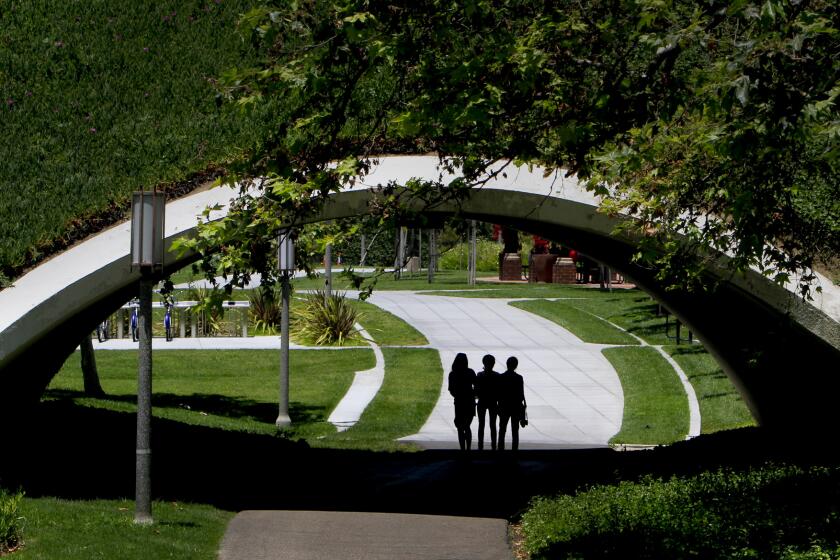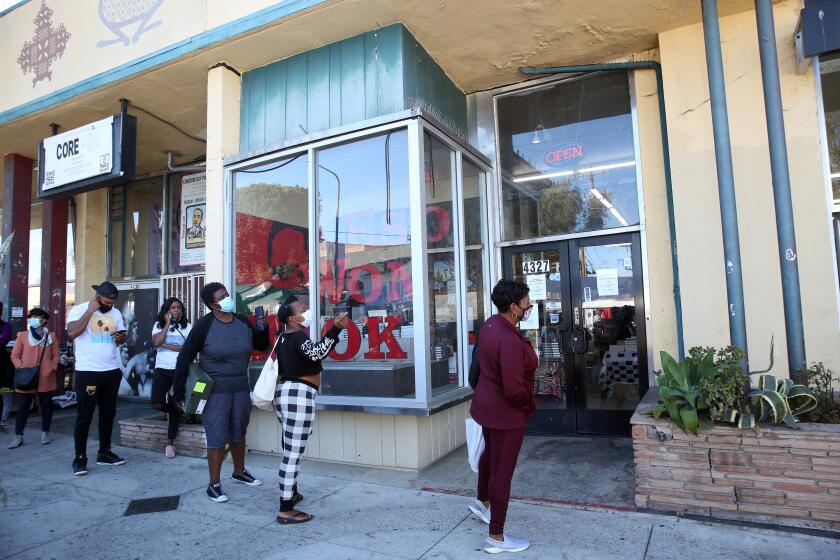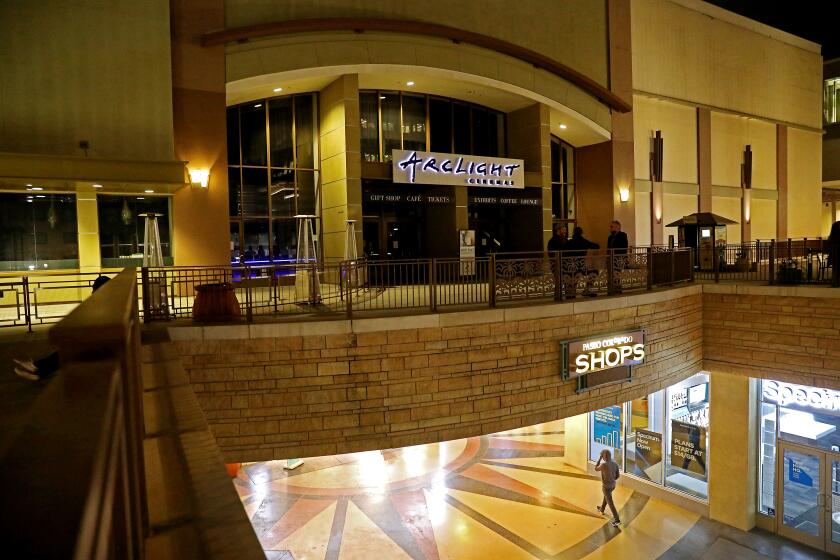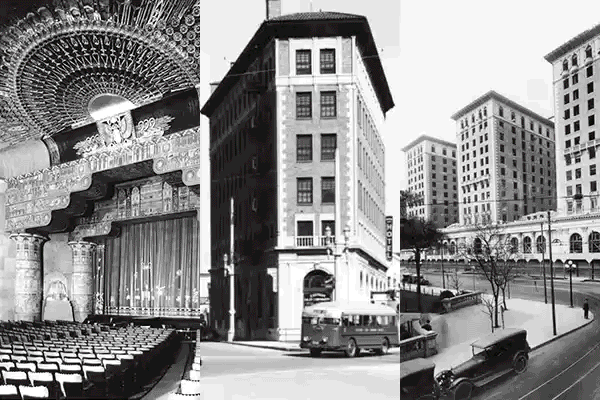Column: Pioneer Hardware is one of the last reminders that Beverly Hills is more than just a glitzy ZIP Code
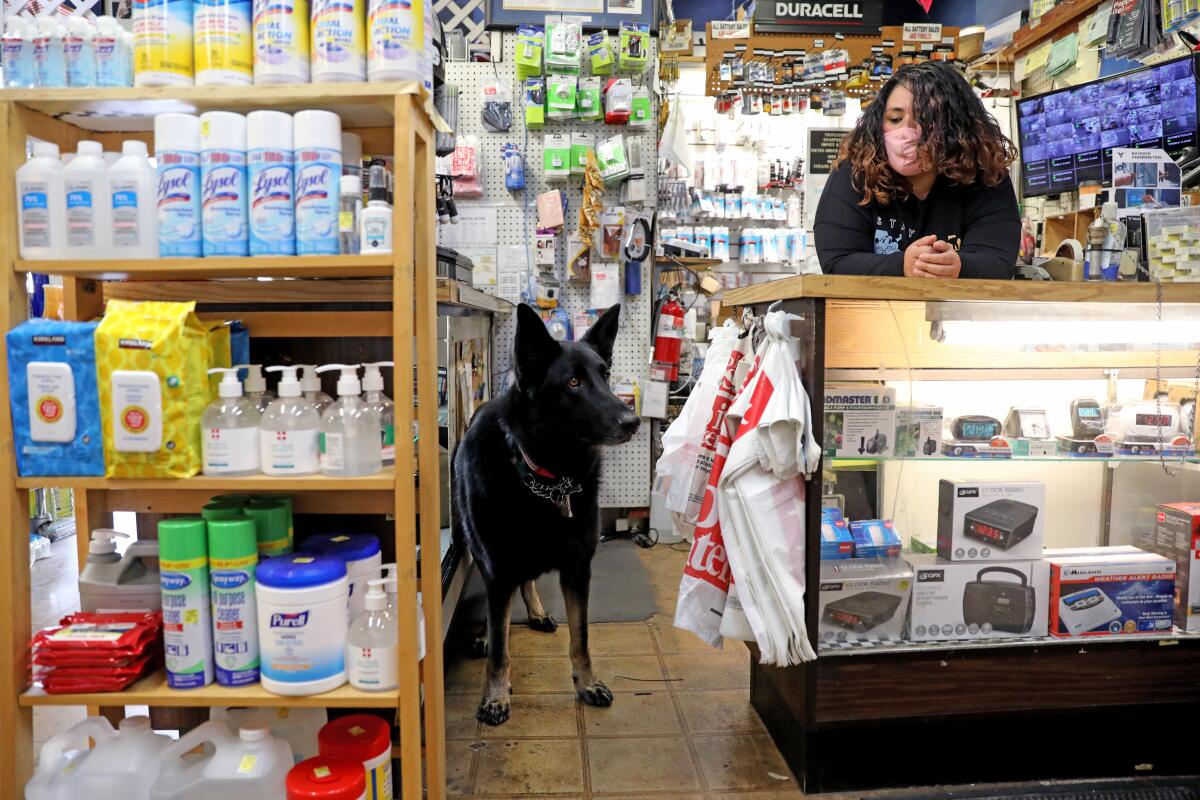
- Share via
To celebrate the glorious spring weather, the precipitous drop in local COVID-19 infections and my own first Pfizer dose, I recently masked up and went shopping in the high-fashion heart of Beverly Hills. Here is what I bought:
A springform cake pan, an automobile fire extinguisher, a potato masher, half a dozen spring clamps, a dish soap-shaped container of hand sanitizer (because it is hilarious), two travel sewing kits, a waterproof notepad and two packs of cocktail parasols.
Not exactly the kind of shopping haul most people associate with Beverly Hills. I skipped Tod’s, Chanel and even Saks and headed instead to Pioneer Hardware, one of the oldest and, alas, most endangered establishments in L.A.’s famous staging ground for A-list fashion.
I didn’t see anyone famous, or at least no one famous that I noticed — though, given the location, that is always a possibility; Denzel Washington shops at Pioneer, I’ve been told, and Ringo Starr has been known to drop in.
I came because a friend had mentioned that on top of everything else that has happened in the last year, her favorite store was in danger of going out of business. As that friend is writer-producer Margaret Oberman, I was a tiny bit surprised that her “favorite store” sold hardware. But when she rattled off, with unnerving ease, a healthy percentage of Pioneer’s deep and highly varied inventory, before launching into an impassioned speech about how important it is to have an oasis of actual necessities amid the canyons of high-end consumerism, I believed her.
This year’s astounding number of rejections for UC applicants reveals several big problems, including the woeful unpopularity of the humanities.
After she mentioned that owner Jeff Tilem had checks signed by Jimmy Stewart and charge plates engraved with the names and addresses of such Golden Age stars as Jack Lemmon, Sidney Poitier and Rosemary Clooney, I had to see the place for myself.
Also, I love a good hardware store, and if the many eulogies written for recently shuttered L.A. establishments are any indication, so do many Angelenos.
Time, superstores and online shopping have not been kind to the local hardware store. Santa Monica’s Busy Bee and Fisher Hardware and Lumber, Canoga Park Hardware, Eagle Rock Lumber and Norris Hardware in the Pacific Palisades are just a few beloved establishments that have been publicly mourned in recent years.
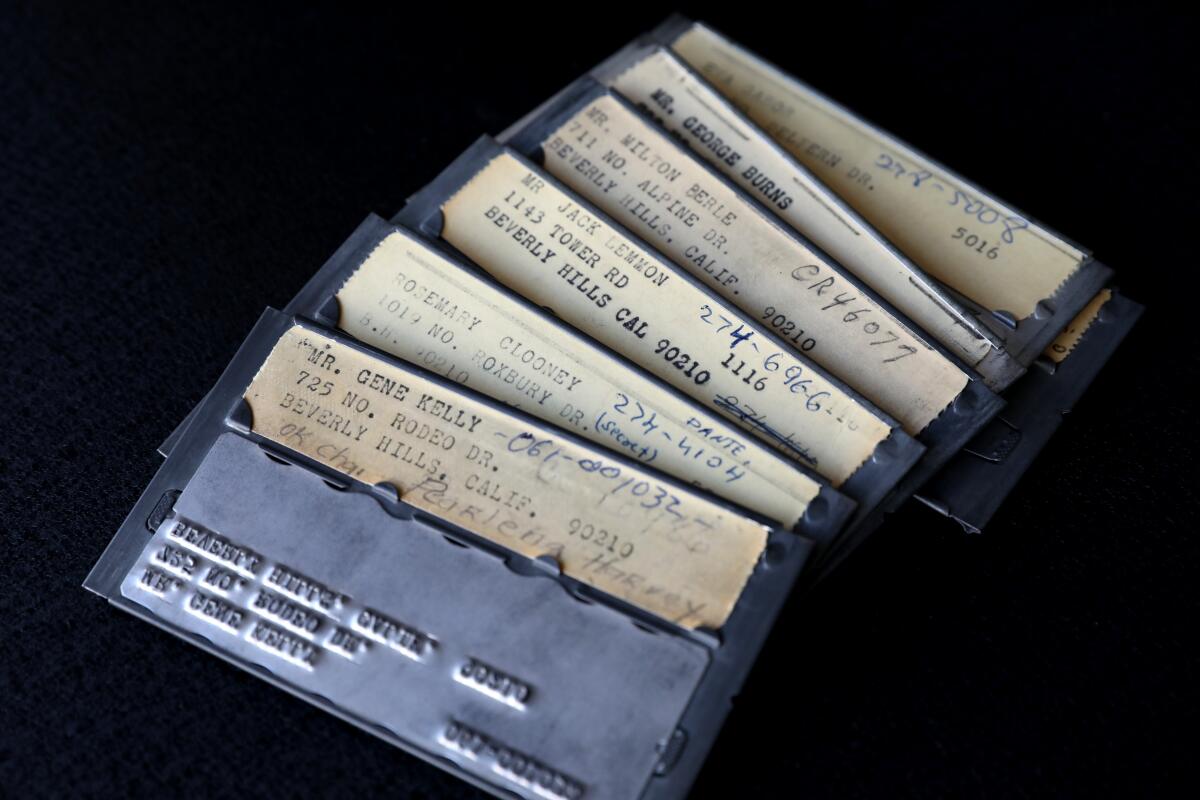
“Save your local hardware store” is not just a local phenomenon. The New York Times ran a paean to Chelsea Convenience Hardware as recently as 2019; country singer Dave Wilcox wrote a song in which he receives angelic instruction to go to East Asheville Hardware rather than Lowe’s.
Like bars, diners, bookstores and movie theaters — as we discovered with the recent closing of the ArcLight and Pacific cinemas — hardware stores occupy a special place in the American psyche, representing a cocoon of kindly competence where all manner of problems can be solved. Entering a hardware store, particularly the old-fashioned kind with narrow aisles wending through obsessively organized fastener displays and shelves stuffed with a manic welter of merchandise, one is filled with inexplicable hope: Why shouldn’t I be able to fix that leaky faucet or build my own doghouse or create the kind of cunning laundry room one sees in all those “simple life” magazines? Here are the tools, here are the experts and here is that miracle drug WD-40.
The local hardware store is the closest thing modern America has to the general store, that linchpin of city and frontier, with its evocation of paper bags filled with penny candy and the communal checkerboard set up before a potbellied stove. Or, as William Faulkner wrote in “The Sound and the Fury,” “a cavern cluttered and walled and stalagmitehung with plows and discs and loops of tracechain and singletrees and mulecollars and sidemeat and cheap shoes and horselinament...”
Across the city on Thanksgiving weekend, indie bookstores greeted lines of customers, kicking off a holiday season of high promise and existential concern.
Small and sturdy, they are filled with people who actually live in the area, who know well the effects of local weather, the habits of local rodentia and insect life — even, in some cases, the Christmas string-light electrical capacity of homes by year of construction.
Pioneer Hardware is very much one of those soothing, enticing emporiums in which you can fulfill every DIY need, including the therapeutic effects of a good browsing session and, if you’re lucky, a chance to commune with Maxwell Silver Hammer, Tilem’s German shepherd. (There is an actual miniature hammer hanging from Maxwell’s collar.)
A sign over Pioneer’s glass door reminds patrons that it has been around since 1926, and the store is certainly one of those increasingly rare portals capable of transporting you through space and time. (It also seems, like “Doctor Who’s” TARDIS, to be bigger on the inside.) While there are too many Clorox wipes for it to be 1926, it doesn’t feel like 2021 either. The ratio of merchandise to floor space is too high, the arrangement of goods too random; this is a space unaltered by algorithms or merchandise memos from the home office. Just beyond the front-and-center display of personal protection equipment, “Beautiful Inexpensive Nite Lights” are indicated by a typeface that screams “boomer childhood”; above it hangs a large inflatable lightbulb. A few yards away, in housewares, there is Tupperware and at least one plastic matzo holder, should you be in the market.
Beverly Hills, or at least the common perception of it, vanishes as well. No one saunters through Pioneer’s flaunting those lacquered paper totes so beloved of other stores in the area (the larger bags probably couldn’t take the corners.) There is no blast of carefully diffused fragrance, unless you count the bayberry and vanilla wafting over from the candle aisle or the metallic tang rising from the key-cutting counter. But there is an instant greeting — whether from Gabriela Garcia or manager Ryan Hudson at the cash register or from Tilem. Customers often announce their needs as they enter—”work gloves,” one man says by way of greeting — which is fine by the staff. “We want to be the ‘Cheers’ of hardware stores,” Tilem says.
When asked about any recent celebrity sightings, Hudson tactfully replies: “The best way we can serve our famous customers is by not talking about them.”
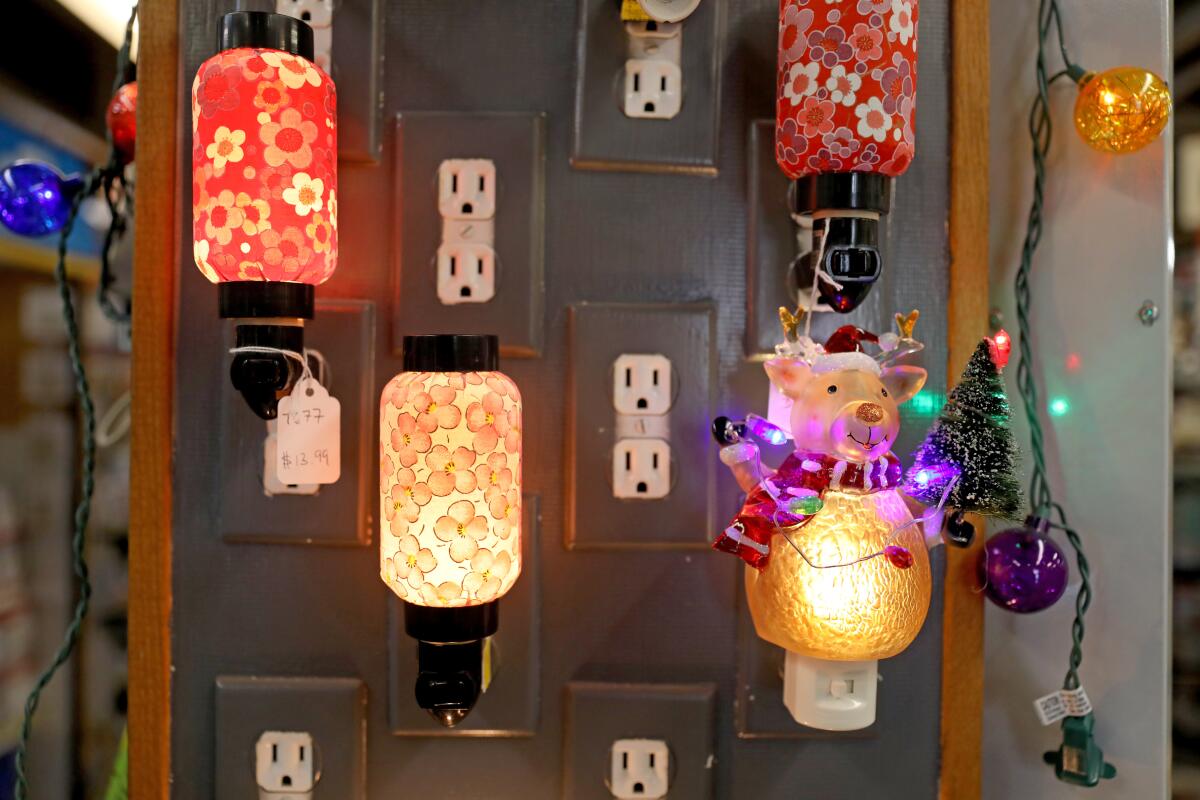
Living history
Pioneer calls itself the oldest family-run business in Beverly Hills. This is true, though the family is really two families and the current establishment at 317 N. Crescent Drive, also known as Pioneer-Lucerne Hardware, is technically only 40 years old.
Which may make this the only known case of a Beverly Hills resident fudging their age upward.
Only it isn’t quite fudging. Pioneer Hardware was indeed established in 1926 on North Beverly Drive, where it quickly became known as the hardware store of the stars. Lucerne Hardware opened in 1983, when Beverly Hills was given funds for senior-living apartments on the condition that it provide essential stores within walking distance. Joseph Tilem, a local attorney who would go on to become mayor of Beverly Hills, was involved in the project, and as his family had founded Lucerne, an equally storied hardware store in New York, he recruited his siblings to establish an L.A. branch.
When the the original Pioneer closed in 1989, Lucerne purchased its name and inventory. Just after the Northridge earthquake in 1994, Joseph asked his son Jeff to take over the store, which was struggling to stay afloat. Jeff believed he was being drafted to close it down; instead, he gave it new life, winning a Golden Palm award from the Beverly Hills Chamber of Commerce in 2013. All of which makes its current state of uncertainty even more frustrating.
“We actually had a boom during the early days of the pandemic,” Tilem says, “because we stayed open. People came in for PPE and hand sanitizer, and some of our older customers came in just to ask if we knew what was going on. But now that everything is open, and everyone has learned to shop online, business is way down. We went from 170 transactions a day to less than half that.”
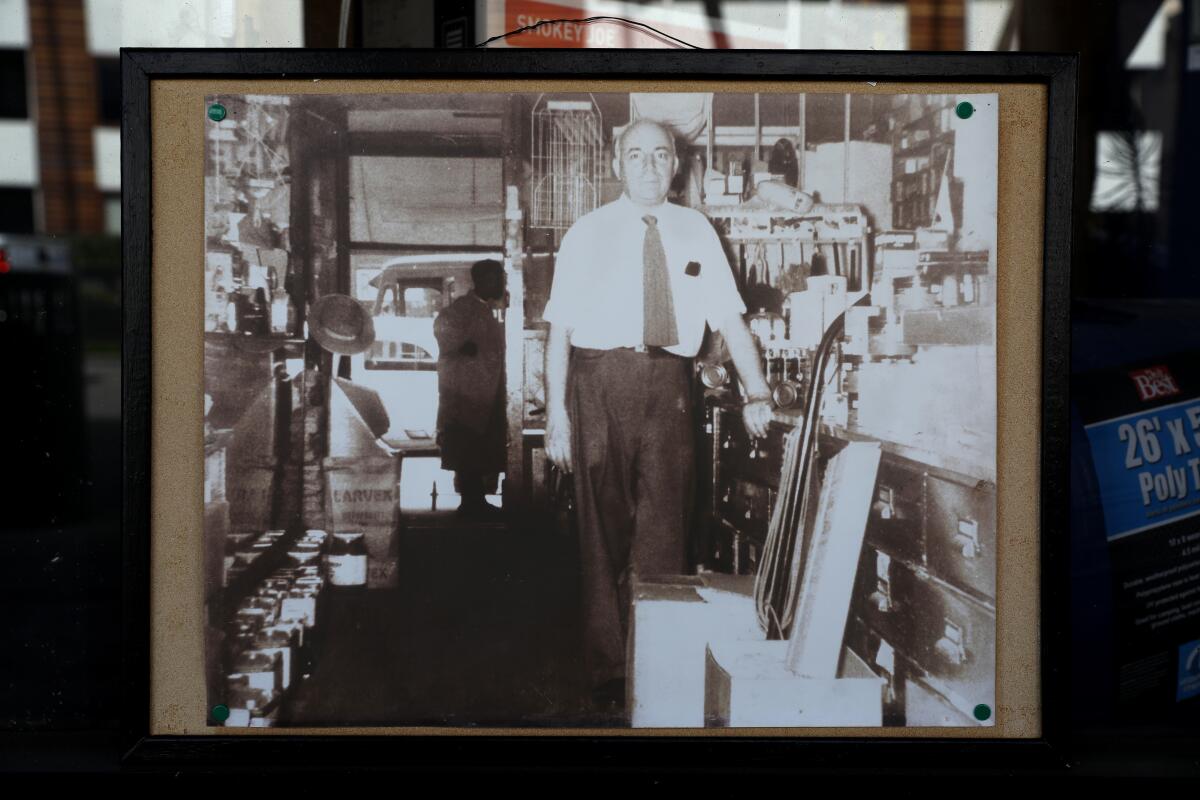
Along the hardware-store spectrum, Pioneer is more daily needs than deep dive. There is no lumber room or mind-blowing display of power tools, nor is there a jumble of outdated-to-antique fixtures kept in stock to appeal to retro connoisseurs. But if you need batteries for your remote, a grip bar installed or a lamp fixed, a place to get your mail or store your luggage for a few hours, Pioneer can help.
You can certainly always find conversation, and you might find yourself quietly standing in line next to someone quite famous. “One time,” Oberman says, “I was getting keys cut and I looked at the woman next to me and it was Jaclyn Smith.”
Whatever fortitude saw me through the pandemic dissolved the moment I heard the ArcLight was closing. The ArcLight Pasadena was my theater.
Oberman, like Tilem, grew up in the area and remembers a time when Beverly Hills was just another neighborhood — richer than most, but full of neighborhood establishments — dry cleaners and delis, shoe repair shops, department stores. Standing in front of Pioneer’s impressive party supply shelf on the day of my visit, they slid easily into an L.A. novena together, ticking off a list of beloved but now defunct businesses: Robinsons, Harry Harris Shoes, J.J. Newberry, Smith’s Food King.
But their shared belief in the importance of Pioneer Hardware isn’t fueled by nostalgia or even the desire many of us have for continuity. Much of the world sees Beverly Hills as a capitalist theme park surrounded by Map of the Stars mansions, which to a certain extent it is; Tilem is proud to show off his Golden Age “autographs” on expired checks and charge plates.
But Beverly Hills is also a community where people live and work and need sandpaper, lightbulbs, screwdrivers and someone to tell them what’s wrong with their garage-door opener. Where the many people without live-in help need help anyway, where everyone could use a good handyperson and a place they can go to refresh themselves with the dream of self-improvement, even if that takes the form of a new toilet plunger or matzo holder.
“This is a small city,” Tilem says, “and people shouldn’t have to leave it to get necessities ... Amazon isn’t going to fix your lamp or put in grip bars for you. We are.”
That business spiked during the early days of the pandemic proves his point; when people really needed help, they went to their local hardware store.
So instead of nodding in mournful agreement the next time you read an obituary for a local hardware store, find the one nearest you and shop there. And the next time you are in Beverly Hills, stop by Pioneer, if only for the same reason it was able to stay open during the pandemic: It’s an essential business, and we need our essential businesses to stick around.
More to Read
The biggest entertainment stories
Get our big stories about Hollywood, film, television, music, arts, culture and more right in your inbox as soon as they publish.
You may occasionally receive promotional content from the Los Angeles Times.
